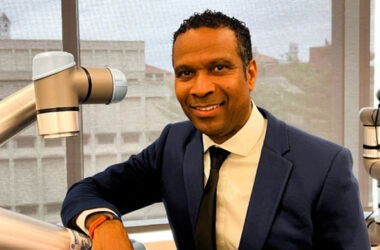
According to TheJerusalumPost, “Jews are the highest-earning religious group in the United States, with 46 percent of the working population earning a six-digit figure every year, according to a study released this week. In terms of annual earnings, the only other group to even come close to the average Jewish income was the Hindus, with 43 percent earning over $100,000. No other group reached even the 30 percent mark, and the overall US average was only 18 percent earning six-figure digits annually.” Depending on how we interpret what the Bible teaches about money, we may be tempted to think that each of the Jews will miss out on the blessing of eternal life.
In Matthew chapter 19 Jesus was approached by a rich man who asked “what good thing do I need to do to inherit eternal life?” Jesus responded, “…If you would be perfect go and sell what you have and give to the poor, and you will have riches in heaven; and come, be My disciple. But when the young man heard this, he went away sad, for he had great possessions. And Jesus said to His disciples, truly I say to you, it will be difficult for a rich man to get into the kingdom of heaven.”
Now some may read the above account and emphasize that this young man was void of hospitality and didn’t consider the poor since hospitality was a big deal in the east during these times. Others may emphasize that since he was rich he was not able to enter the kingdom of heaven and may even see this as a deterrent from earning a high income and accumulating riches. Although his lack of concern for the poor was a sign that he was disconnected from his cultural mores (remember they washed the feet of travellers back then) his possessions had become an obstacle between him and God. Frank Sonnenberg said: “Being obsessed with money is a high price to pay.” But does Jesus’s response mean that those who are living in poverty have an easier time entering the kingdom of heaven? Is He suggesting that we shun receiving inheritances, avoid economic advancement and set our aims on earning just enough to pay for our daily necessities? If the answers to these questions are yes, then how are we to give to those in need, donate to our church organizations and experience life beyond just getting by? Thankfully, Jesus is not teaching against being financially rich but against being self-righteous (the young man said he kept all of God’s commandments since he was young), selfish (he walked away instead of inquiring how he could best help the poor) and idolatry (he preferred the presence of money over the presence of God.
Many people partially quote 1 Timothy 6:10 and leave out the “for the love of…” part. Let’s revisit the caution Paul wrote to Timothy: “But those who desire to be rich fall into temptation, into a snare, into many senseless and harmful desires that plunge people into ruin and destruction. For the love of money is a root of all kinds of evils. It is through this craving that some have wandered away from the faith and pierced themselves with many pangs.” I like the way Paul Maxwell from Tithe.ly comments on the above verse:
“First, note that the Apostle Paul is talking about a style of life that makes money its god…
Second, note that Paul is not writing against accumulating wealth. He is writing to a young pastor to help him care for the souls of the churches he is planting.
Third, Paul wasn’t writing a textbook on business. He was, again, helping a young pastor to help his people focus on God…”
I would like to leave you with this old story titled The Miser:
An old man sells all of his goods for a large lump of gold, which he then proceeds to bury in a hole just outside his property. Every day he visits the spot, uncovering the gold, looking at it for a bit, then covering it back up.
One of the man’s employees notices this odd behaviour and follows the old man. He sees the buried gold, and when the old man returns home, the employee removes the gold and runs away with it.
The next day the old man finds that his gold his missing and cries out in agony. A neighbour hears the old man’s story and suggests that he place a rock in the hole and cover it back up. “It makes no difference, does it? You didn’t do anything with the gold anyway.”
The lesson: Working hard is great. Making money is great. Saving money is fine. But money itself is nothing more than pieces of paper or lumps of minerals. Don’t forget that money’s true purpose is in service of a happy, healthy life. The size of the lump doesn’t make much difference if you don’t know how to use it to feel fulfilled.













